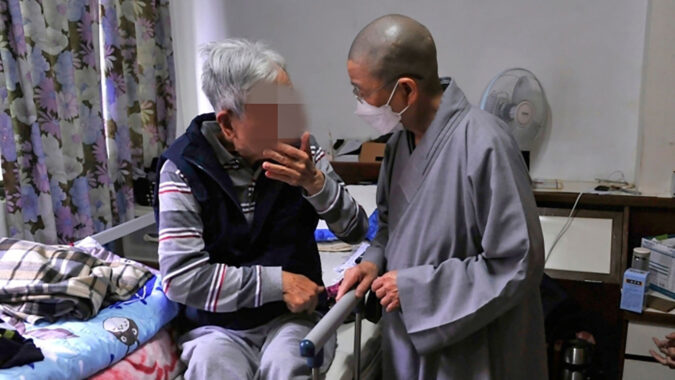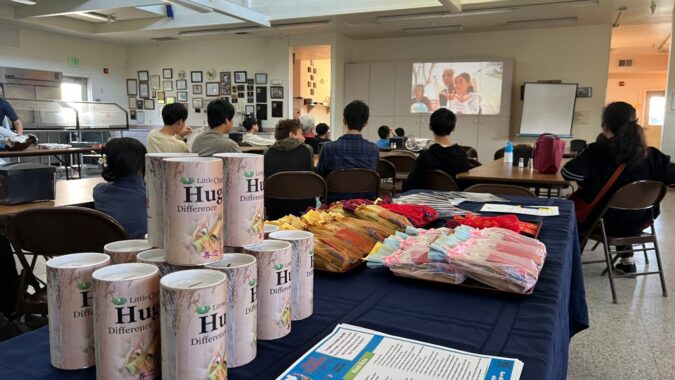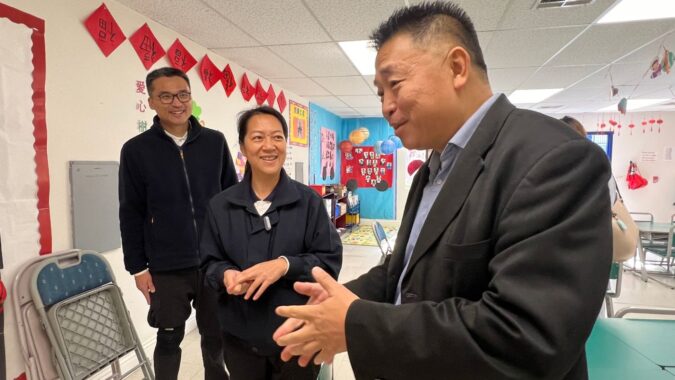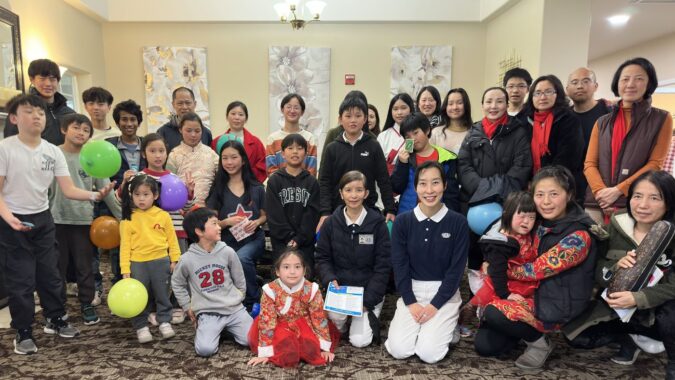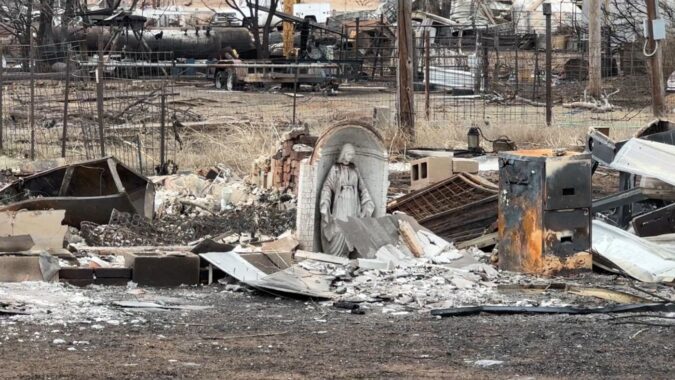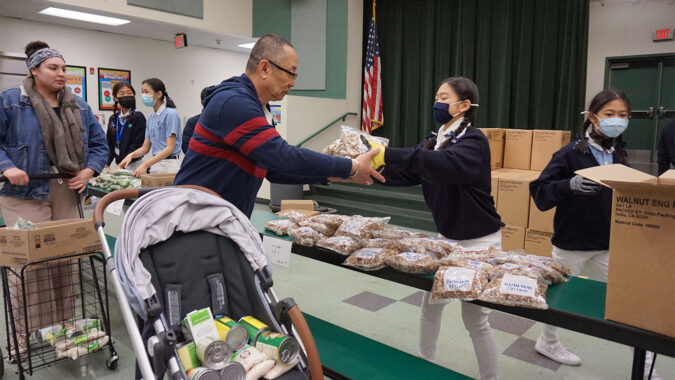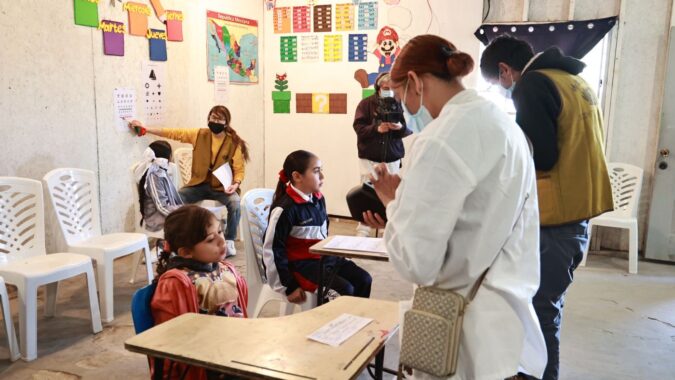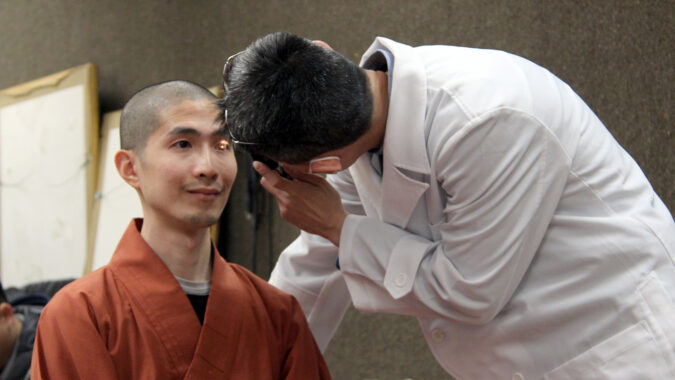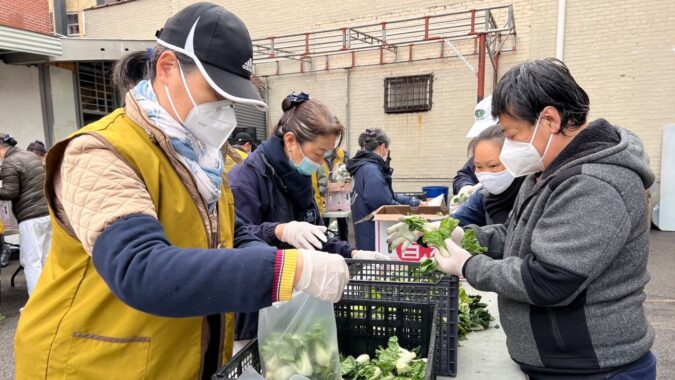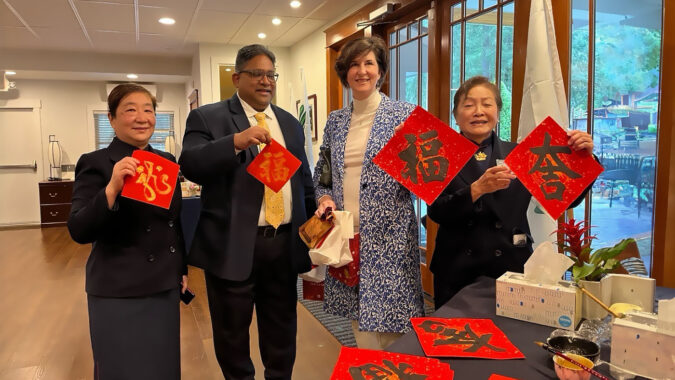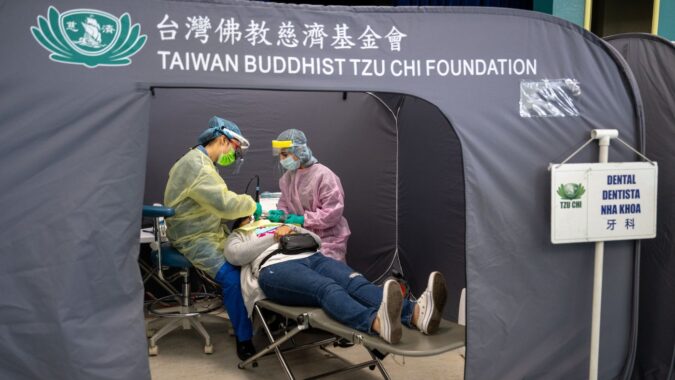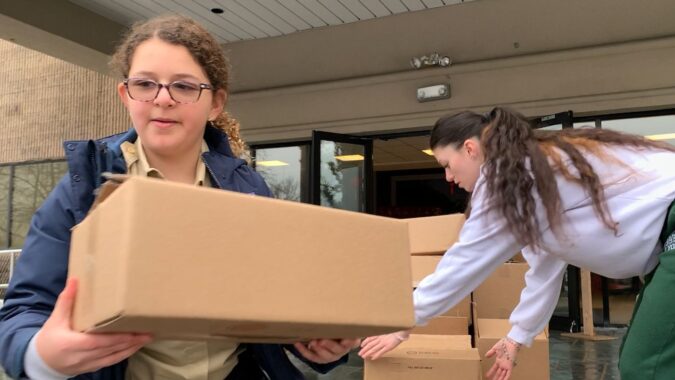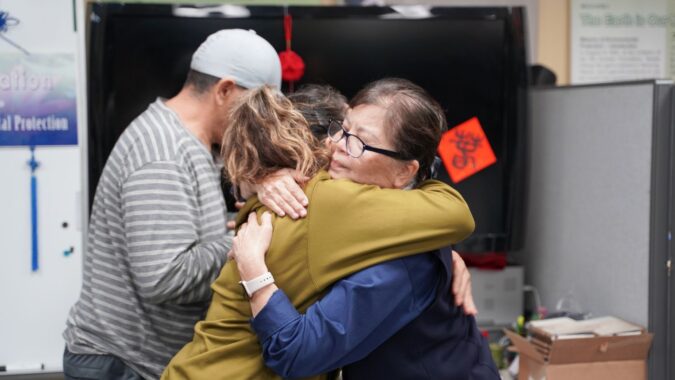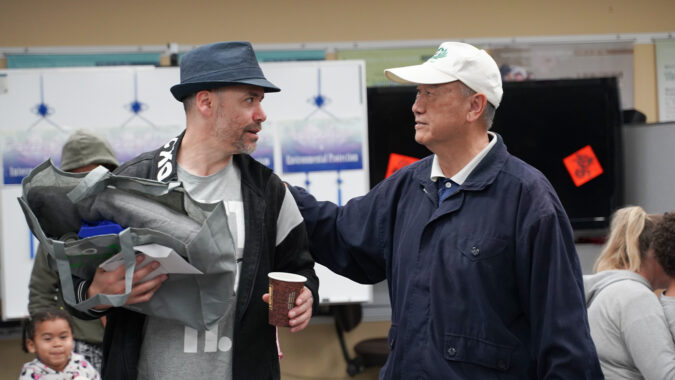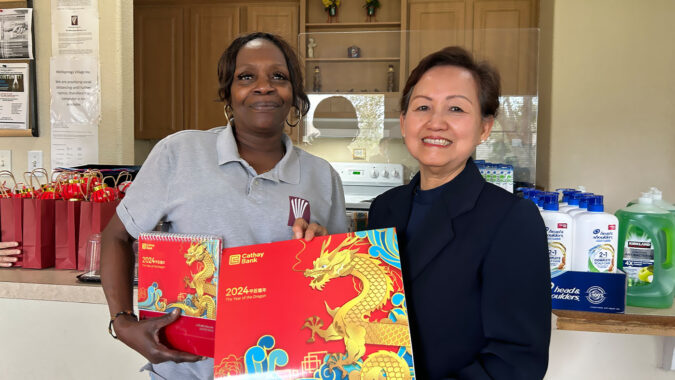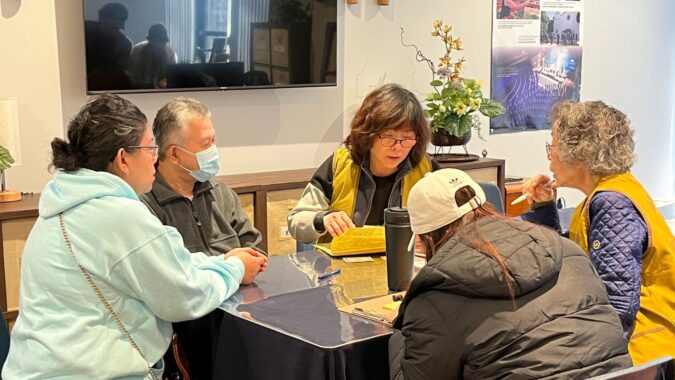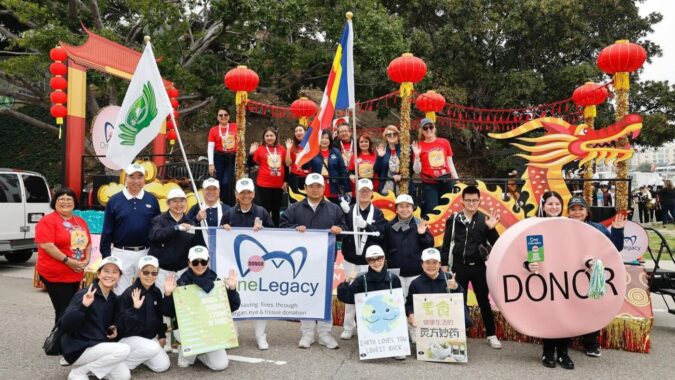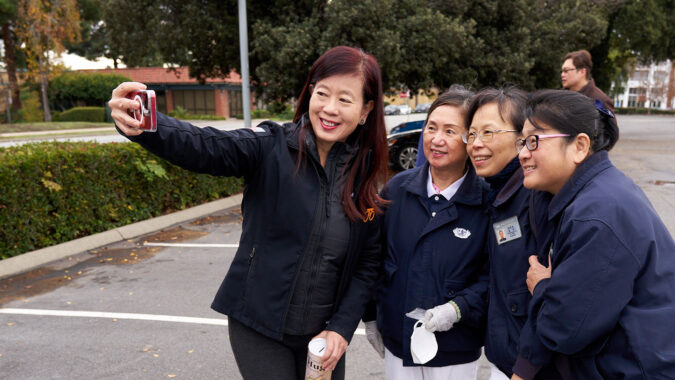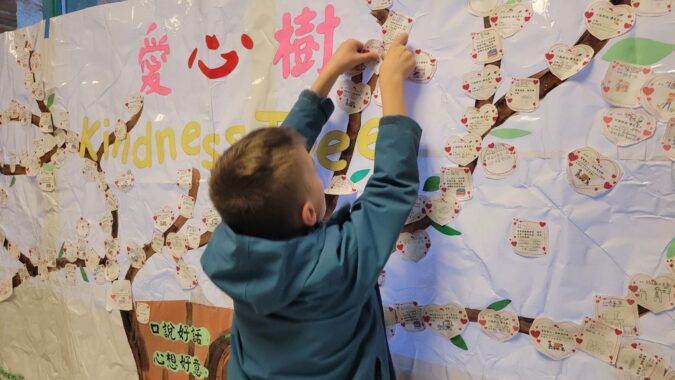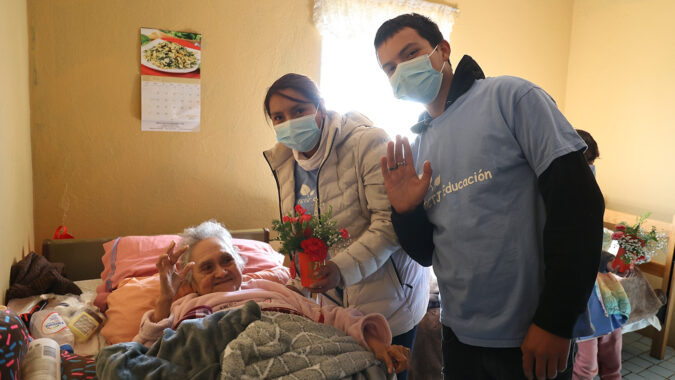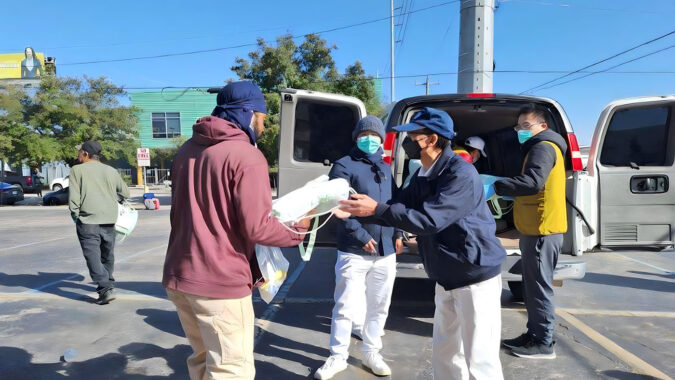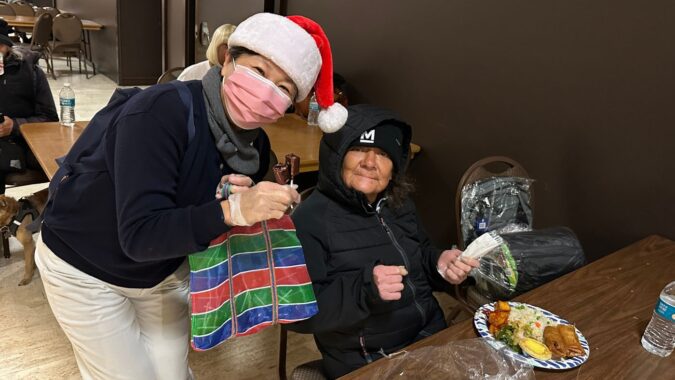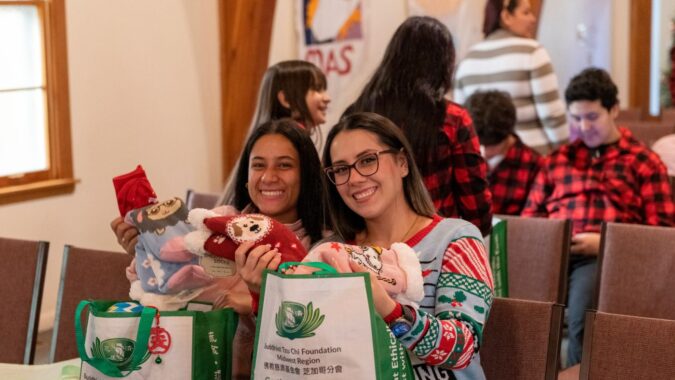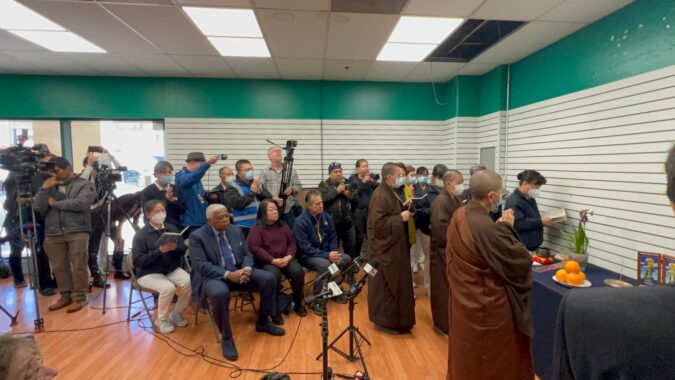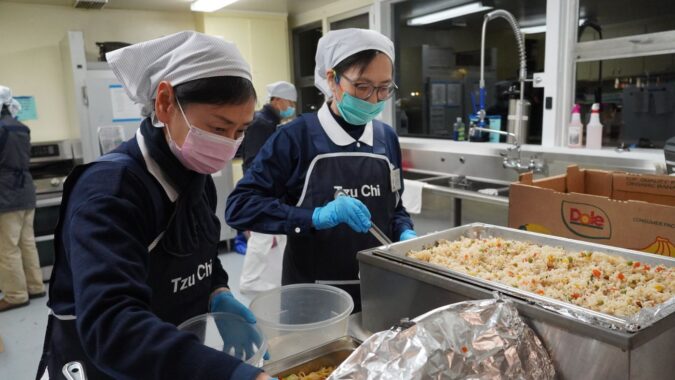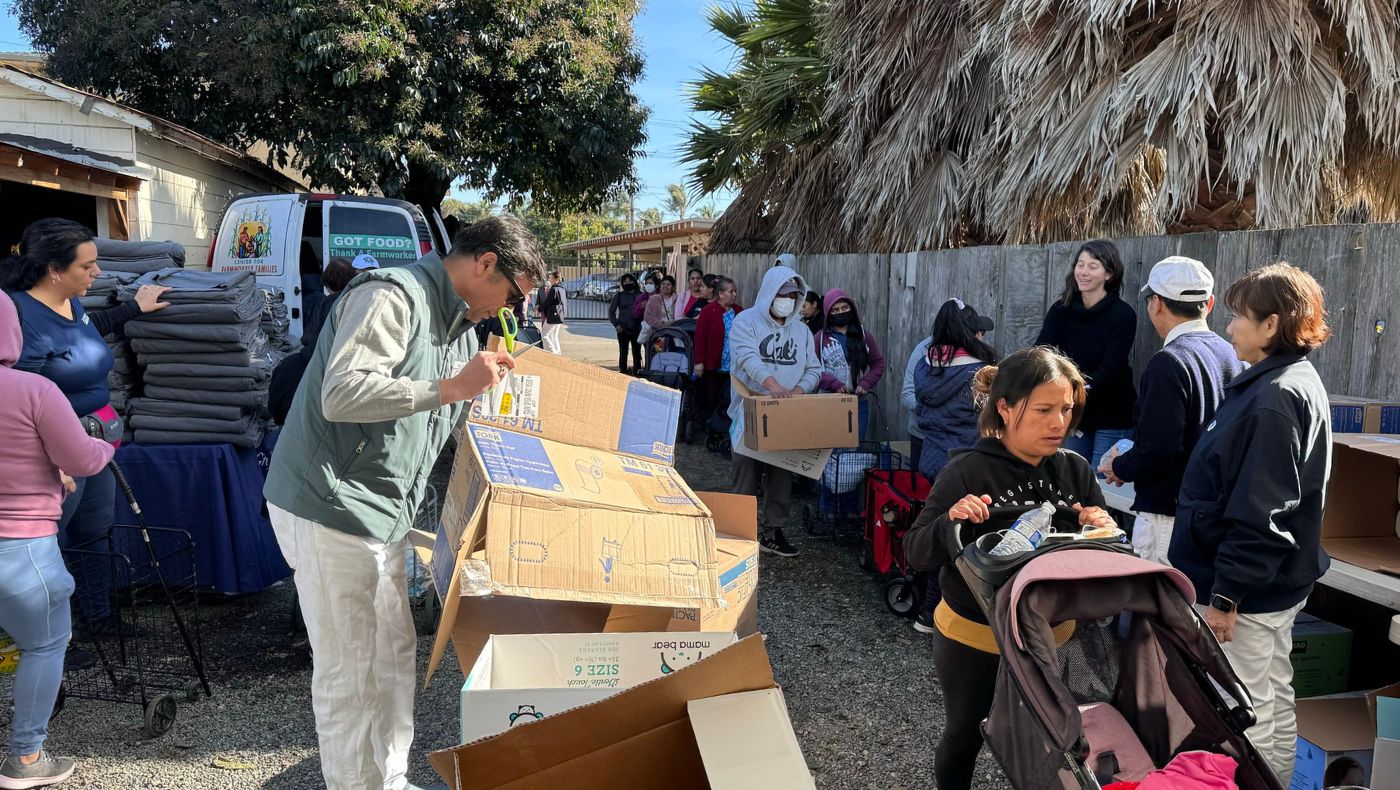
Written by Amy Young, Emily Polivka, Irene Chen
Translated by H.B. Qin
Edited by Andrew Larracuente
During the winter rainy season in February, the Bay Area of Northern California was battered by wind and rain for many days. Still, right before Chinese New Year’s Eve, the wind and rain finally stopped as sunshine appeared. On February 9, 2024, the Chinese New Year’s Eve, a team of 15 Tzu Chi Northwest volunteers went to Watsonville, a city in the southern part of the Bay Area, to assist the Watsonville Center for Farmworker Families in distributing supplies to farmworker families. After the event, the volunteers visited several local social welfare organizations to learn about and discuss how to work together to assist in the mid-and long-term reconstruction of the Pajaro flooded area, which was hit hard by the rainy season flooding a year ago.
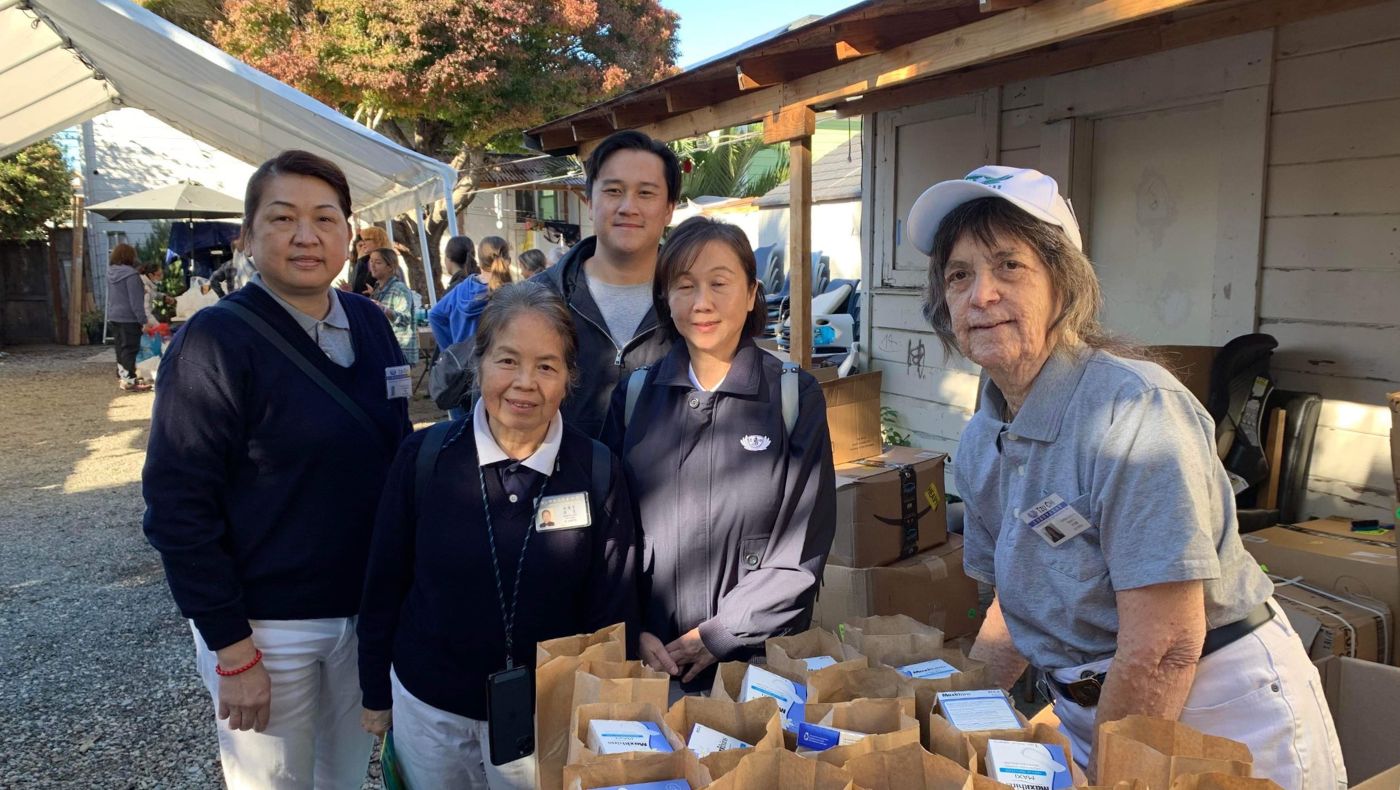
Distribution to Watsonville Farmworkers
Tzu Chi Northwest volunteers spent a memorable Chinese New Year’s Eve together. The volunteers assisted in the distribution organized by the Watsonville Center for Farmworker Families, helping distribute to 264 local farmworker families. In the cold winter temperatures, warm clothing like blankets, scarves, gloves, hats, and coats were distributed to underprivileged farmworker families in need. At the same time, diapers, wipes, and sanitary pads were given to underprivileged women and children.
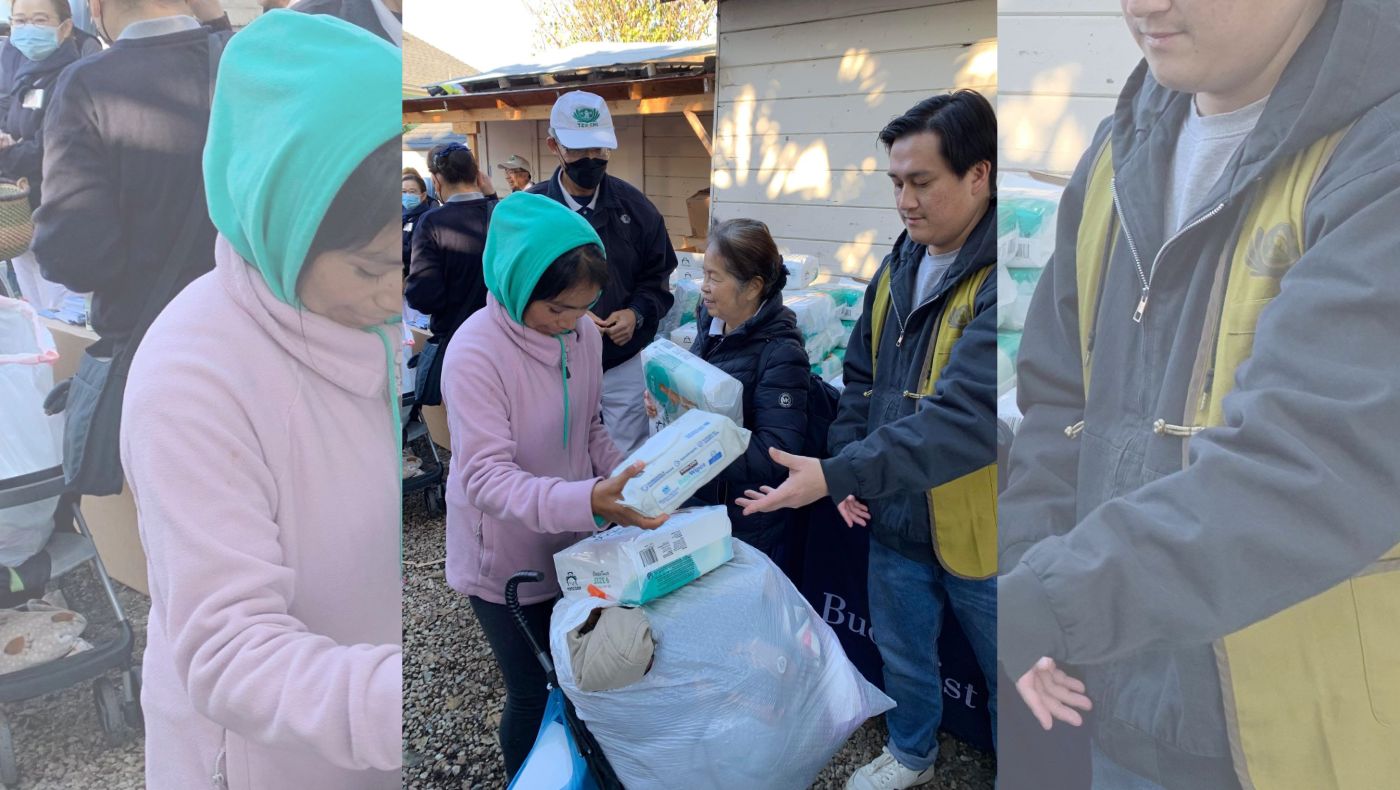
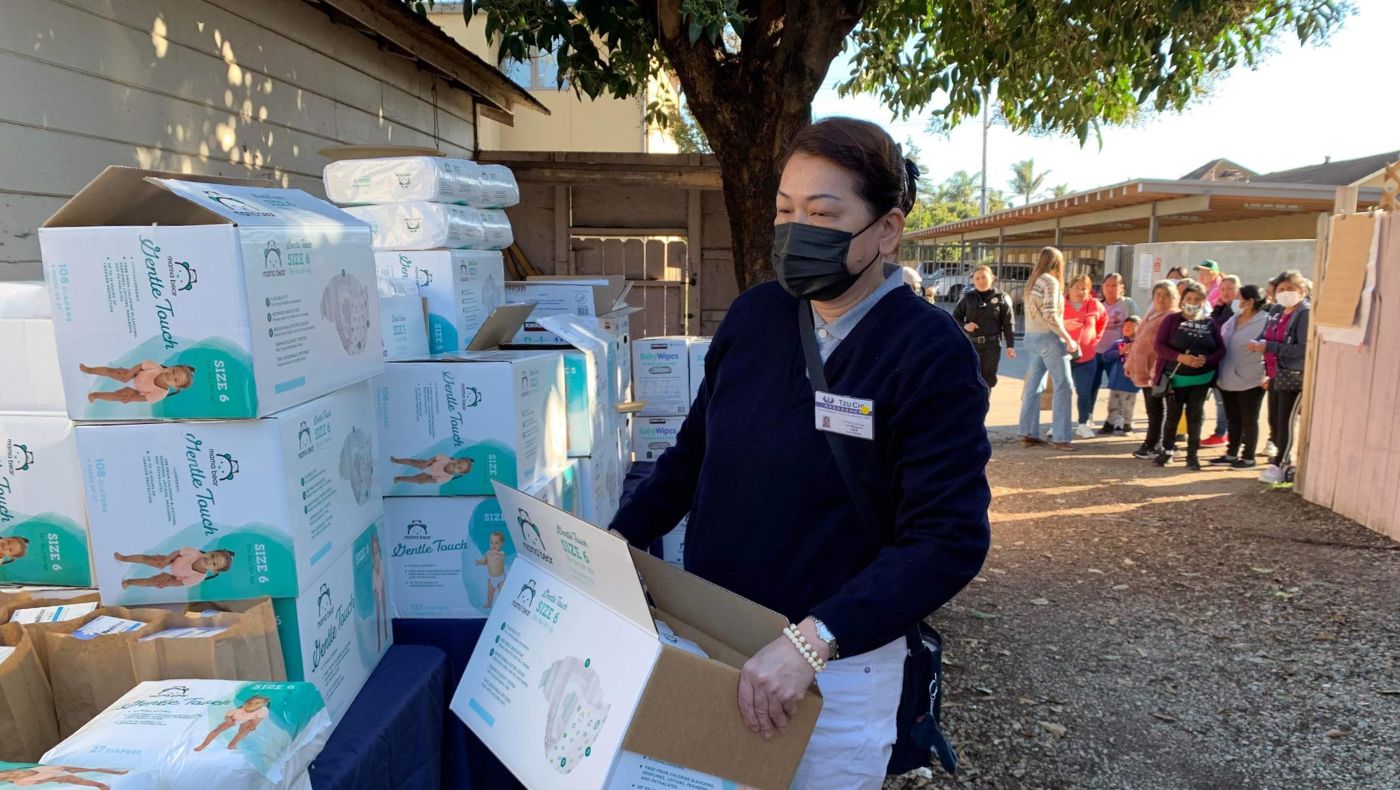
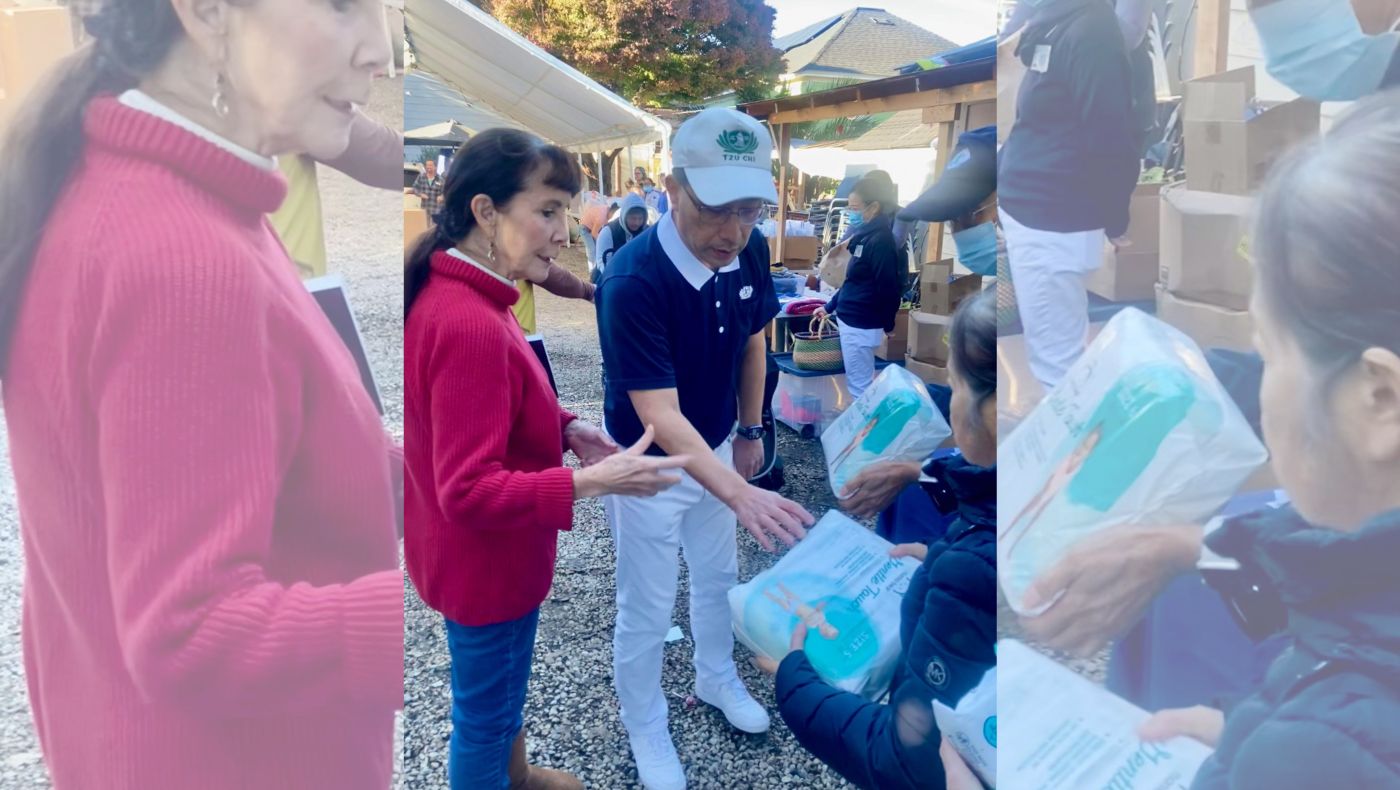
Volunteers provided daily necessities for different family members, distributing diapers, wet wipes, and sanitary pads to disadvantaged women and children. Photo/Emily Polivka
The distribution to Watsonville farm workers is organized by the local Watsonville Center for Farmworker Families and is held on the second Friday of every month at 2:00 p.m. The distribution site is located in the backyard of a resident’s house, where supplies are distributed to pre-registered farmworker families in need. This is the third time Tzu Chi volunteers have participated in the distribution. In addition to the Tzu Chi Northwest volunteers, Maria, a survivor of the Pajaro floods a year ago who became a new Tzu Chi volunteer last year, joined Tzu Chi as a Spanish interpreter to assist in the distribution.
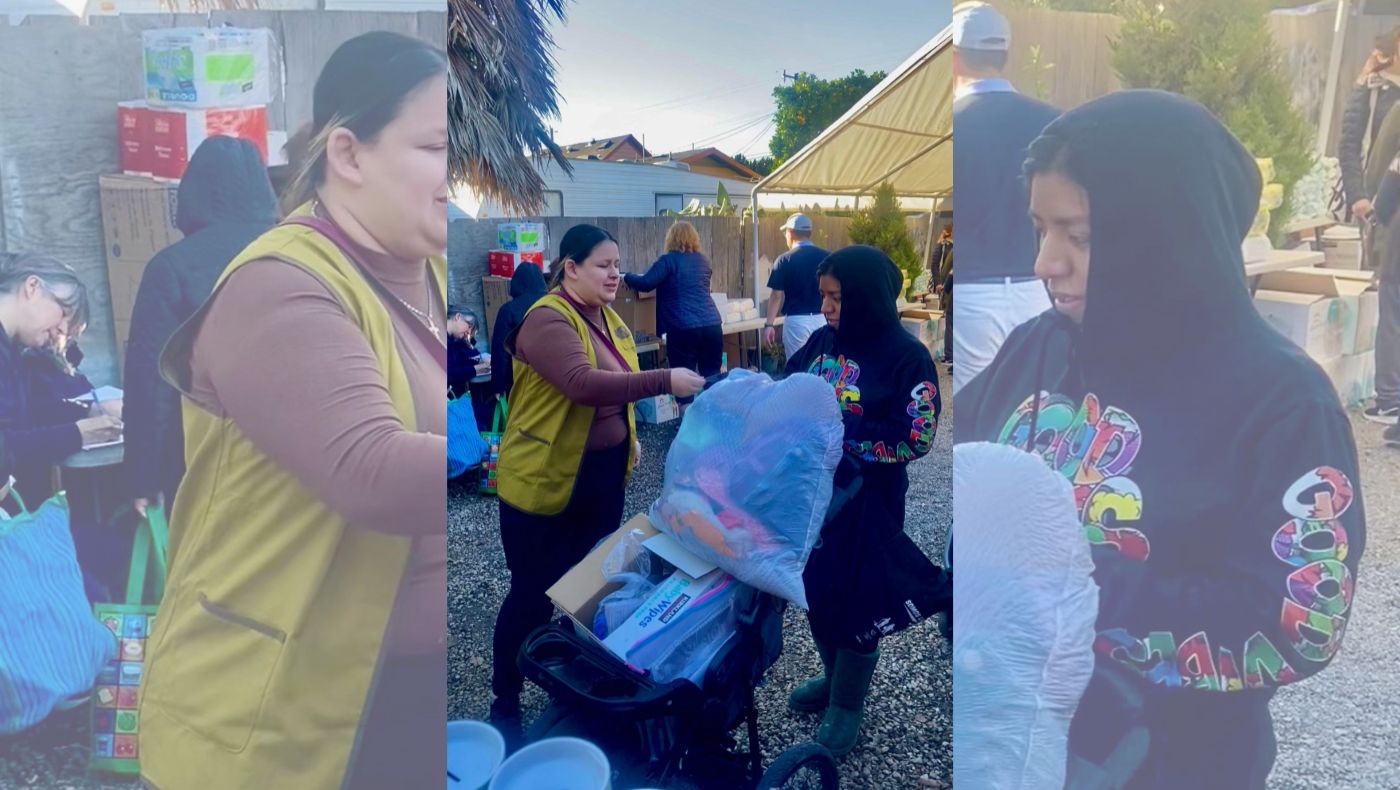
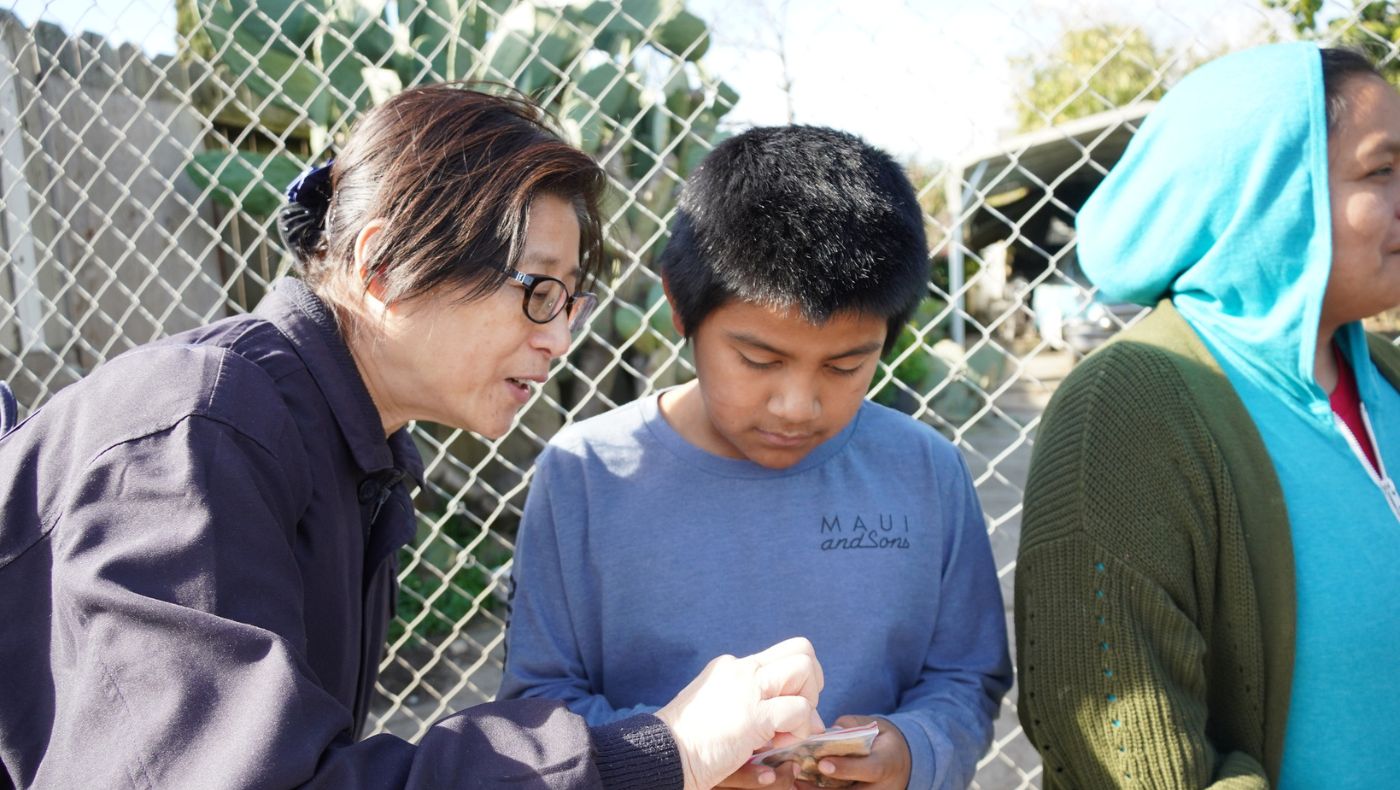
The organizations participating in the distribution arrived at the site around 12:30 p.m. to prepare for the activity. All the volunteers unloaded the distribution materials in the narrow street and set up tents and tables in the backyards. Outside the site, nearly 300 farmworker families were waiting to receive the supplies before two o’clock. In the queue, many Hispanic mothers carried their babies on their shoulders or pushed their sleeping toddlers in strollers. To ease the anxiety of the adults in the queue and calm the children’s restlessness, the thoughtful Tzu Chi volunteers have prepared small snacks, candies, and fruits for each distribution. They went back and forth in the long queue, talking with people in simple Spanish or inviting Hispanic volunteers to assist them.
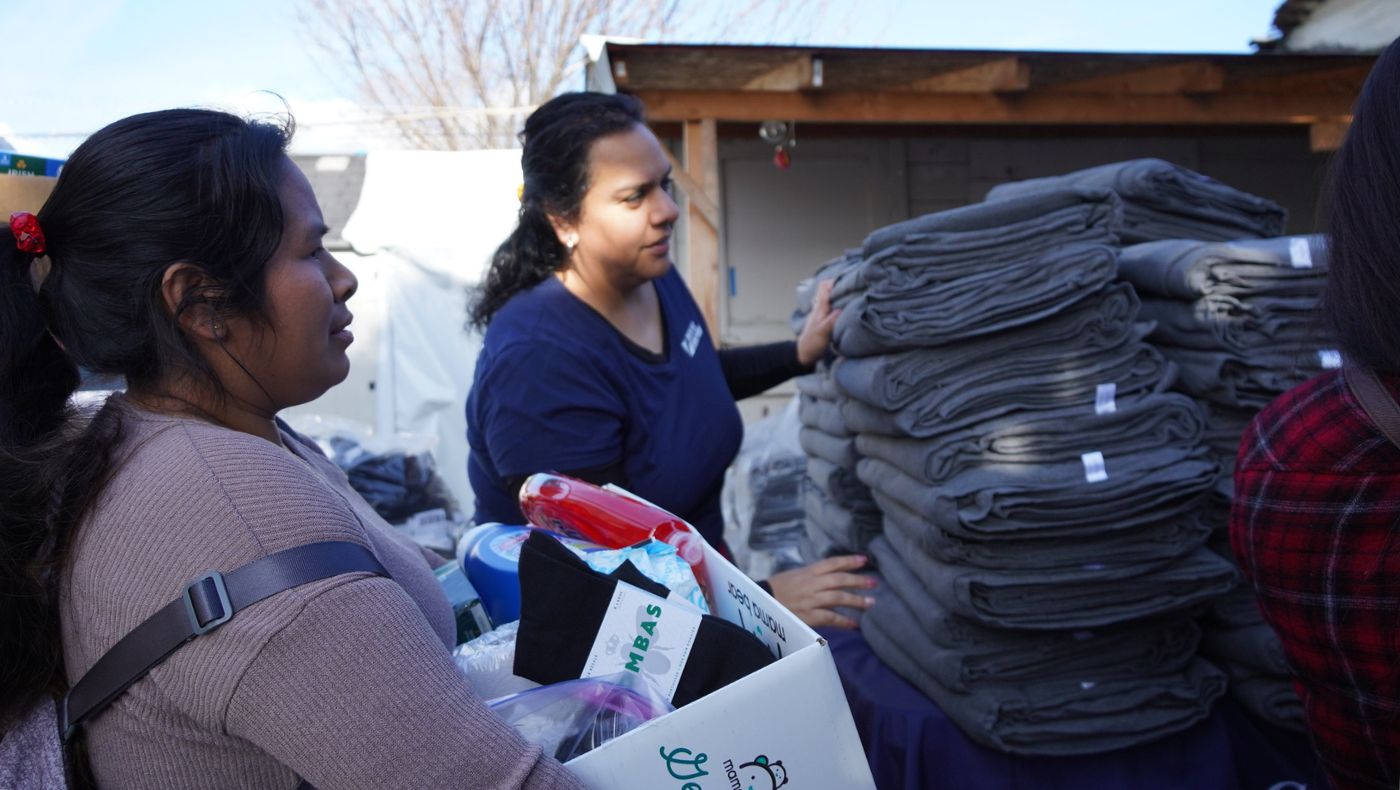
Many of the farmworker families had only brought a few small shopping bags, which were insufficient to carry heavy supplies such as rice, soybeans, and canned goods and made it difficult for them to walk home with several heavy bags. Tzu Chi Northwest volunteers leveraged their eco-friendly ideas to provide the people with cardboard boxes containing diapers and wipes and large plastic bags containing Tzu Chi blankets, which are large and solid, for effortless loading of the supplies. While distributing the blankets, the volunteers also introduced the production of Tzu Chi blankets to the families and the staff of the Center for Farmworker Families; all of them were amazed when they learned that the blankets were made from recycled plastic bottles. The Center for Farmworker Families indicated that they have never distributed blankets before and felt that this item is suitable for winter distribution.
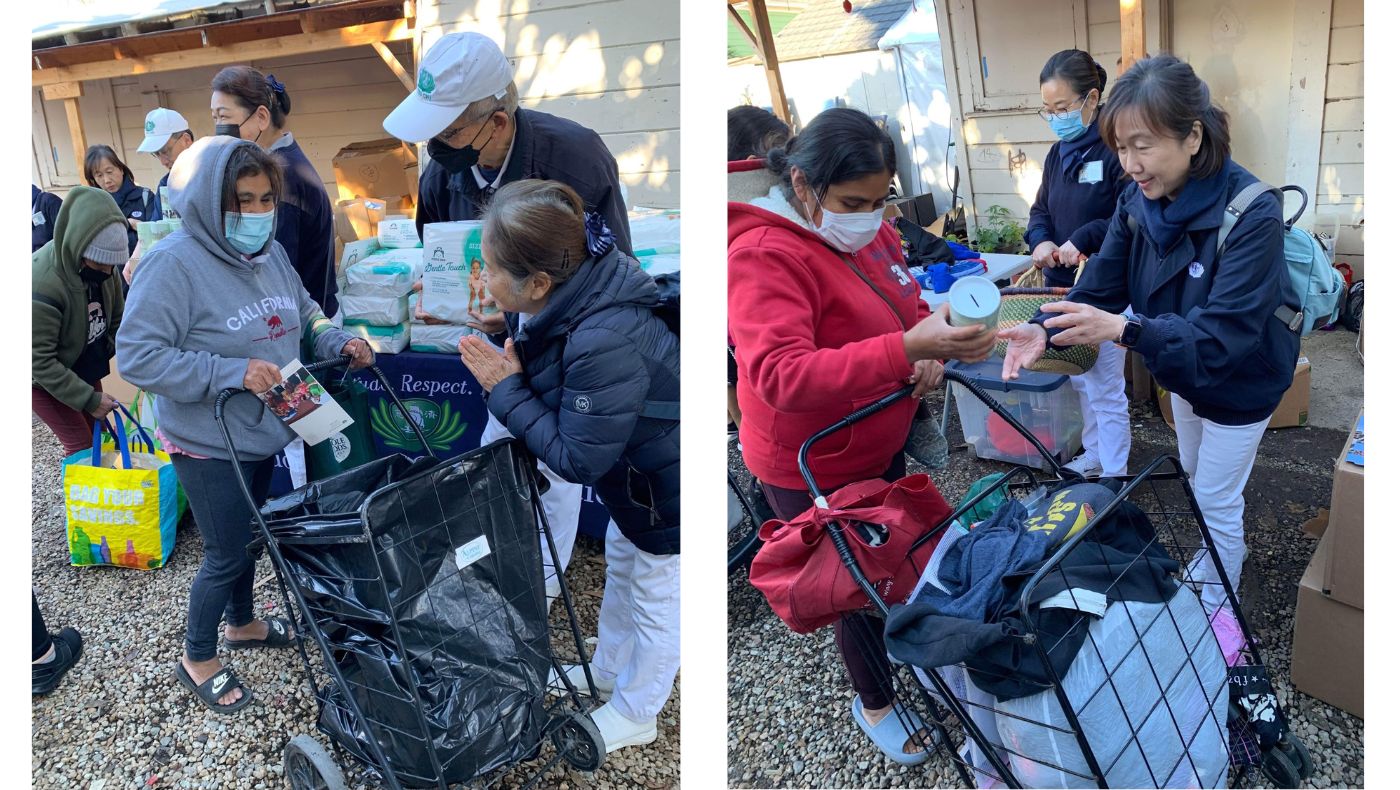
When volunteers participated in the first distribution in December 2023, they noticed that among the families who came to collect the supplies, several women were carrying their children on their backs or in their arms, waiting for their husbands to pick them up as they held heavy supplies, or walking to the parking lot several blocks away; some people even walked home on foot. During the subsequent distribution, volunteers brought home-owned or borrowed carts to help the families load and transport the supplies, relieving the mothers’ burdens. They accompanied the families to the cars in a mixture of simple English and Spanish, sometimes sign language. They loaded the supplies, or they even attended their walks through the streets until reaching their homes.
Caring for Pajaro's Post-Disaster Life
After the severe flooding in Pajaro in early 2023, volunteers of Tzu Chi Northwest provided emergency relief. They kept thinking about how to help the survivors rebuild their lives in the medium and long term. Through the recommendation of the former mayor of Watsonville in late 2023, they were able to get in contact with two philanthropists who are well respected by the residents: Dr. Ann Lopez, the executive director of the Center for Farmworker Families, who invited Tzu Chi to join hands with many local organizations to participate in the distribution on behalf of the Center, to care for the disadvantaged farmworker families as well as the survivors of the Pajaro flooding.
Initially, Tzu Chi volunteers were often worried because they wanted to deliver many supplies, but their vehicles were not big enough to load them all. When the Center knew that Tzu Chi volunteers were worried because there were not enough vehicles to deliver the supplies, the head of the Center comforted them and said, “Don’t be pressured; this is the first time that you are doing this. Just do the best you can, and the most important thing is that I hope that you understand how this distribution works so that we can work together through participation.” In addition, the staff organizing the distribution also pointed out that the winter season from December to March is the fallow period, during which farm workers need more assistance because they have less income. What is required at this time is for more social welfare organizations to join in and pool their strength to cope with the seasonal difficulties.
Dr. Katie Gabriel-Cox, Chairperson of the Center for Farmworker Families and a local OB/GYN doctor, shared with the volunteers her experience participating in the distribution: “I came here once, and I couldn’t stop. Even though Fridays are my office days, I take time out every second Friday afternoon every month and come to the distribution.” Katie believes that the ten-minute conversations she has with patients in the clinic do not allow her to understand their pain truly, and she believes that health is not just about the blood pressure and various conditions she sees in the clinic but also about other factors such as diet, living environment, and safety.
I see the real needs of farmworkers only when I get out of the clinic and reach out to the neighborhood, which gives me a deeper understanding of the real lives of my patients.
Dr. Katie Gabriel-Cox, Chairperson of the Center for Farmworker Families and a local OB/GYN doctor
Therefore, in addition to investing human resources and supplies in the distribution, the volunteers cared for the post-disaster lives of the flood survivors in Pajaro. Tzu Chi Northwest Region Executive Director Chi-Jen Huang and several other volunteers arranged a visit to several local social welfare organizations after the distribution to learn about how the local community assisted the flood survivors in rebuilding their lives.
The first visit was to Pajaro’s Regeneración – Pajaro Valley Climate Action, whose primary goal is to turn climate emergencies into opportunities to create a stronger, healthier Pajaro Valley community. Eloy Ortiz and Nancy Faulstich are the case managers and directors, respectively. They introduced their Climate Change project, which aims to bring about a fundamental change in the working environment of the Pajaro farmworkers community by protecting the environment. Chi-Jen Huang told the two that this coincides with Tzu Chi’s Master Cheng Yen’s decades of advocacy for environmental protection and vegetarianism and hoped that the two organizations could work together to solve the problem of environmental protection in the community.
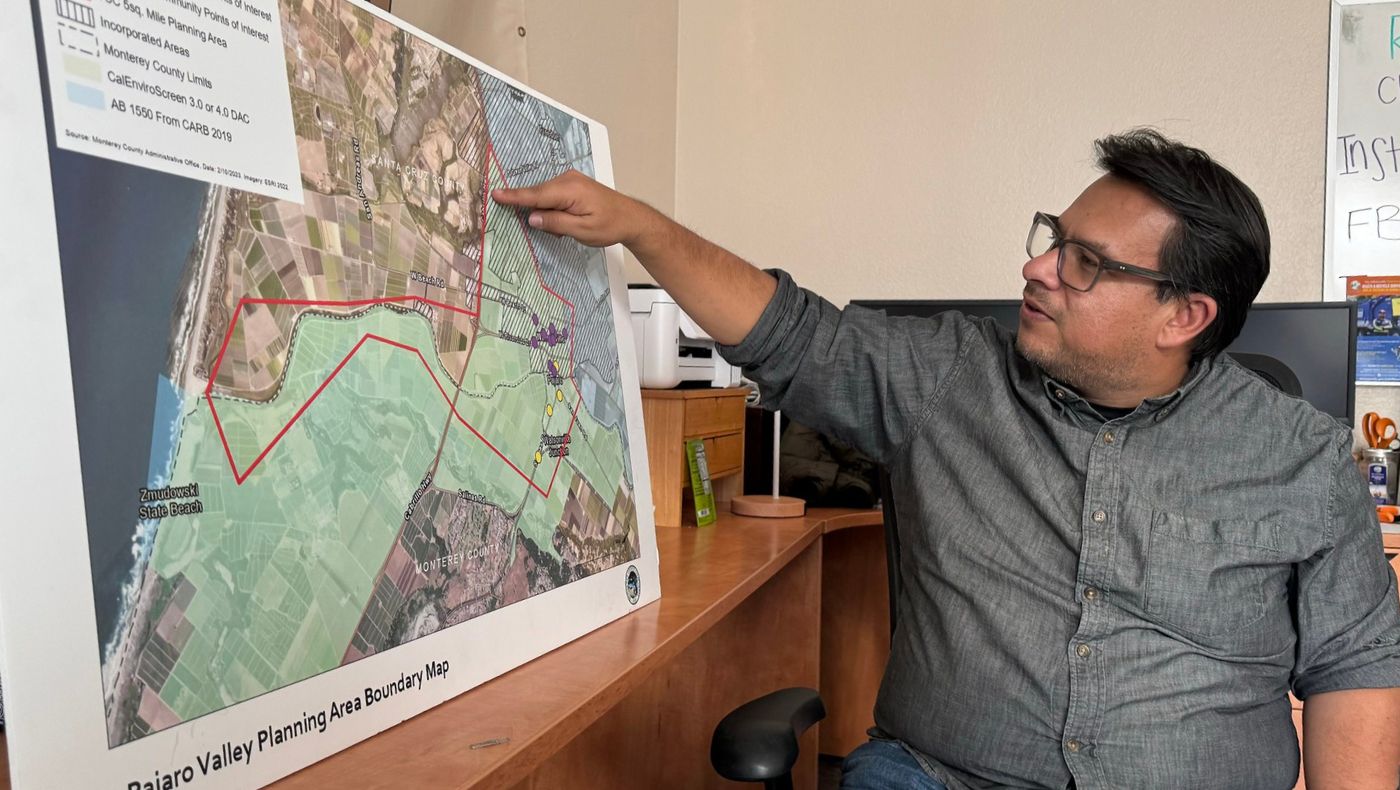
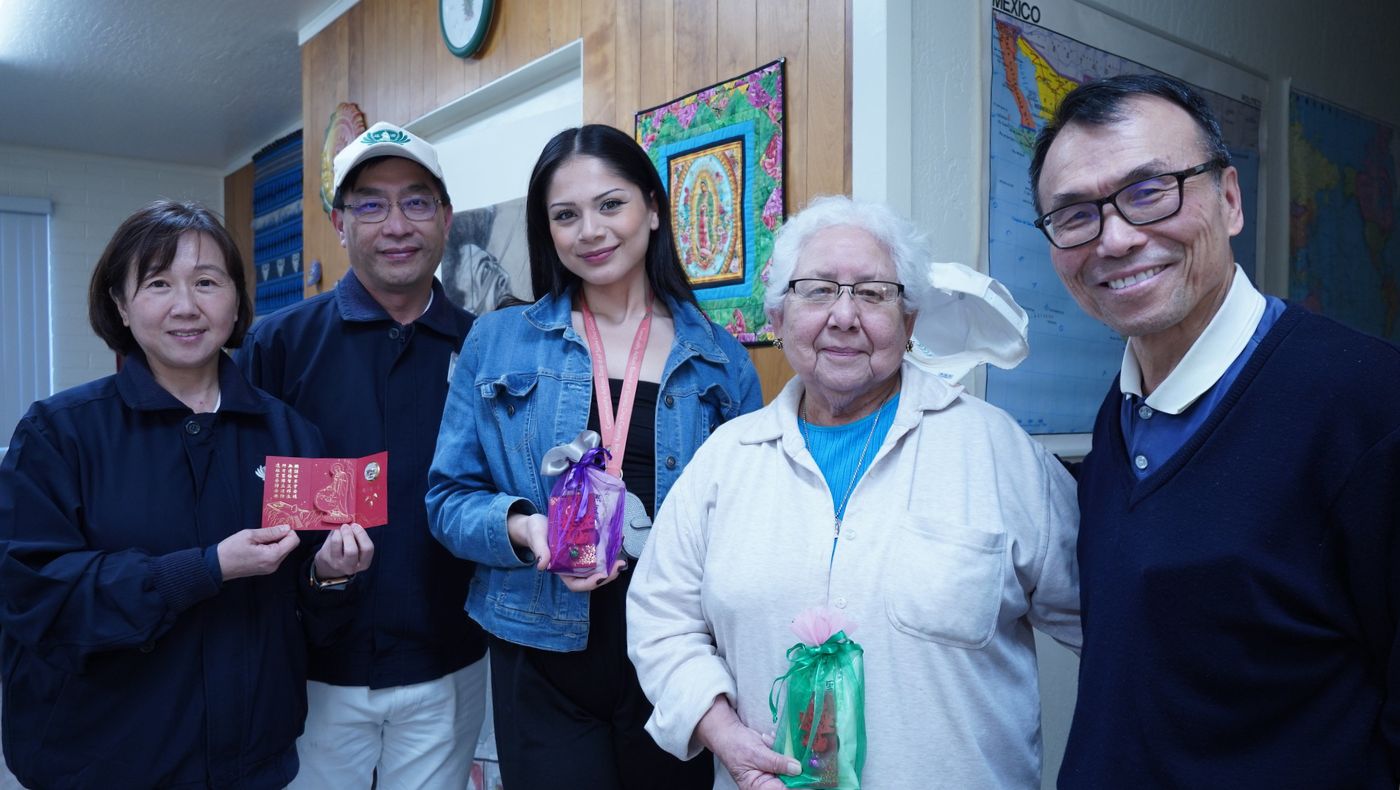
Casa de la Cultura is the only non-profit organization that provides comprehensive services to hundreds of migrant farmworker families in the agricultural counties of Watsonville and Salinas. Sister Rosa, the Pajaro Flood Long-Term Recovery Committee chair, has been leading local partners in the flood recovery effort. Casa de la Cultura also provides a venue for the weekly Pajaro Residents’ Meeting, which provides a platform for farmworker families to exchange information and help them rebuild and care for their lives.
For the last stop of the trip, Tzu Chi volunteers arranged a dinner meeting with Adam Scow, Pajaro School District director, to discuss how to deeply cultivate the Pajaro community through education, such as the feasibility of remote learning, thus bringing more learning opportunities and resources to local children.
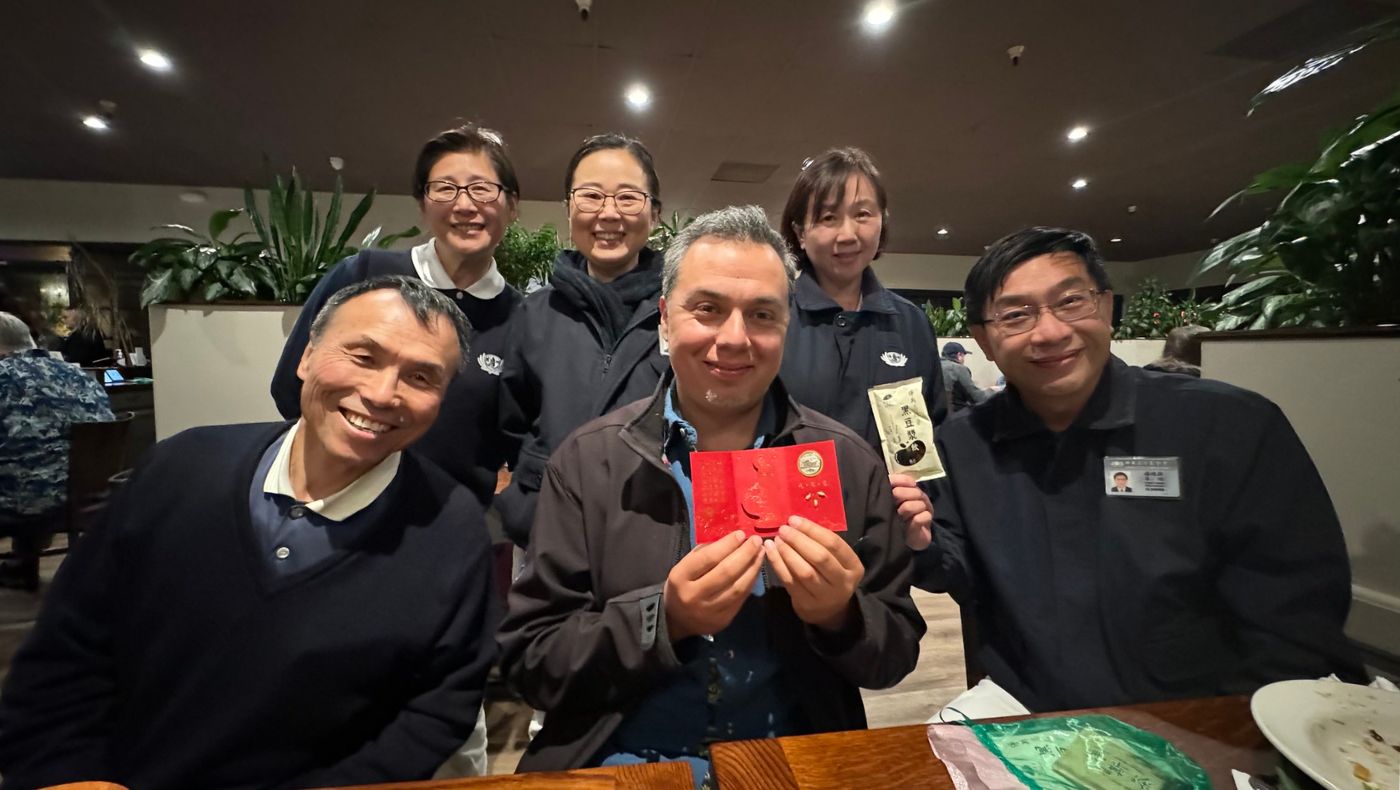
It was nighttime when the Tzu Chi volunteers hit the way home, accompanied by the stars and the moon. As the day comes to an end and the rainy season finally passes, it’s hoped that, in the new year and every new day, when the sun rises over the Central Valley mountains and dries up the rain stains on the roads, the farmworker families of the Pajaro community see more light in their lives where the sun shines.

